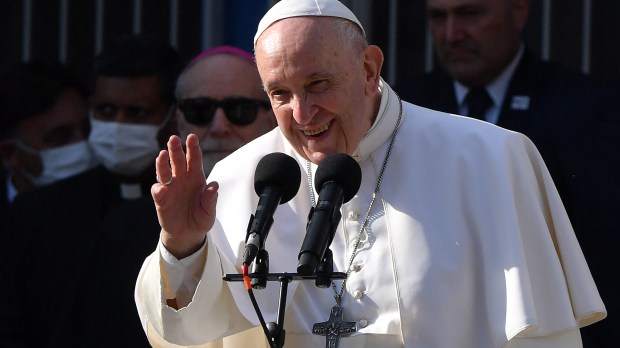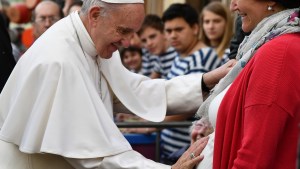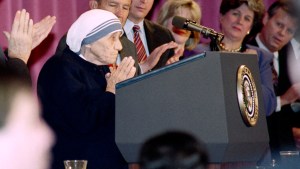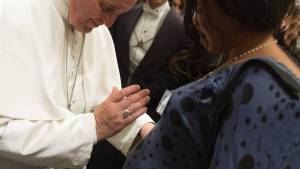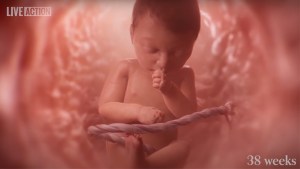As is customary with Pope Francis, the return flight from his apostolic trip to Slovakia included a press conference with the Vatican journalists on board, who represent various language groups and countries.
The English-speaking contingent asked the Pope about the issue of pro-abortion Catholic politicians, inquiring even if, as a priest, he’d faced the issue of giving the Eucharist to a politician who supports abortion.
The Holy Father said that he had never been aware of having a pro-abortion politician before him to receive Communion. But he took the opportunity to reiterate the reasons why the Church is, what he called, “so hard” on the issue of abortion.
Abortion is more than a problem. Abortion is homicide. Abortion — there is no reading between the lines: Whoever has an abortion kills. Pick up any biology book for medical school students. By week three of conception, long before the mother realizes it, all the organs are already there, all of them, also the DNA. It’s not just a person, it’s a human life. Period.
And this human life must be respected. This principle is so clear. To those who don’t understand it, I would ask two questions: “Is it right to kill a human life to solve a problem?” Scientifically, it’s a human life. Second question: “Is it fair to hire a hitman to solve a problem?”
[…] Scientifically it is a human life. Textbooks teach it and I ask if it’s fair to kill to solve a problem? This is why the Church is so hard on this subject. Because it’s a little — if she accepts it — like she accepts daily homicide.
Like a father
While the questioner had specifically mentioned the US political situation, the Pope, as is customary, did not go into the cases of particular countries.
However, he insisted that this issue must be handled pastorally.
Communion, the Pope said, drawing from the word itself, is for those “in the community” of the Church.
Then, those who are not in the community cannot receive communion […]. Why? Because they are out of the community – ex-comunitate – excommunicated they are called. It is a harsh term, but it means that they are not in the community, either because they do not belong to it, they are not baptized or have drifted away for some reason.
The Eucharist can’t be received by those who are not in the communion, the community, “and this is not a punishment,” he said, but simple because, “Communion is uniting yourself to the community.”
The problem is not a theological problem, that’s simple. But it is a pastoral problem: how we bishops manage this principle pastorally.
The Holy Father went on to cite various historical situations where he said that a principle had been politicized instead of handled pastorally. The burning of St. Joan of Arc, he said, could be an example. Or the witch hunts.
If we look at the history of the Church, we will see that whenever pastors have handled a problem not like pastors, they have taken a stand in politics. On a political issue. […] When the Church, to resolve a principle, does not do it pastorally, she does it politically. And it’s always like that.
Use God’s style
What should pastors do then, he asked?
Be pastors, be pastors, and not to go and condemn, not to condemn: to be pastors. Even pastors for those who are excommunicated. […] To be a pastor with the style of God. And the style of God is: closeness, compassion, and tenderness.
Pope Francis said that he wouldn’t want to “particularize” the United States, but is “giving principles.” He resisted answering hypothetically:
You can tell me, “If you are close, and tender, and compassionate with a person, would you give him communion?” This is a hypothesis. If he’s a pastor, he knows what to do at all times. But as a pastor. But if he goes out of the pastoral dimension of the Church he immediately becomes political. And you see this in all the denunciations and non-pastoral condemnations that the Church has made. With these principles, I believe a pastor can manage. The principles are taken from theology. Pastoral ministry is theology and the Holy Spirit who is leading you to act with the style of God.
